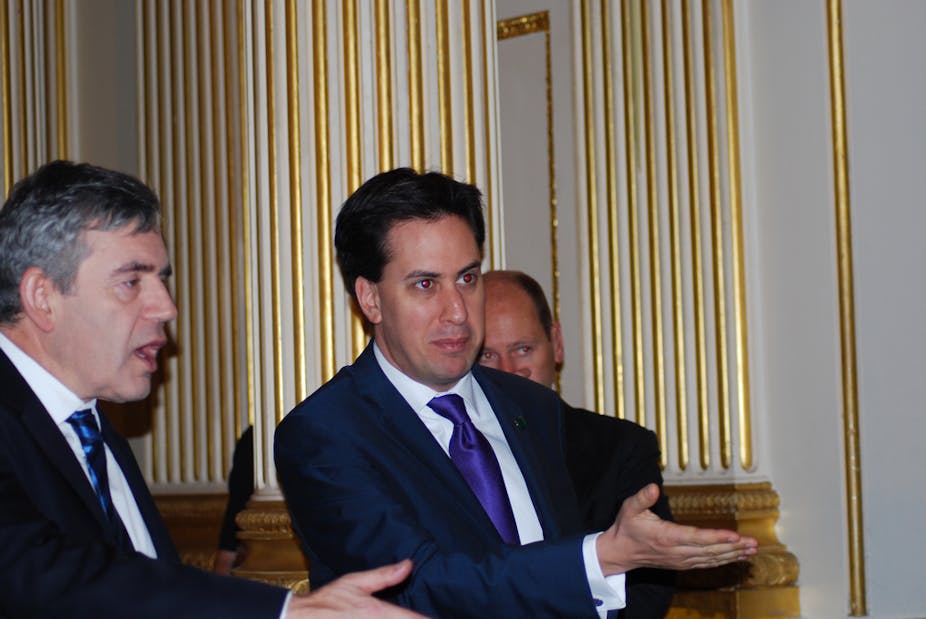Ed Miliband must be pretty anxious about this Labour Party conference. The chances are the trade unionists in the audience will be more vociferous than they were at the TUC Congress in Bournemouth earlier this month.
Although Miliband and Labour are keen to make the economy the main thrust of the conference, redefining the party’s relationship with the affiliated unions will dominate the proceedings. In Bournemouth the hopes of a u-turn were not realised; instead Miliband showed a dogged determination to forge ahead with plans to reduce union influence over Labour and its policy-making. The unions must have known no change would be forthcoming and that Miliband needed to show his mettle to the British electorate; that he was not prepared to kow-tow to the union bosses.
There is no question that Miliband got off lightly. The hefty criticism of him was reserved for the post-speech, out-of-hall comments. I’m inclined to think the TUC delegates were keeping their powder dry for a battle worth fighting in a different arena. This week may see a radical change.
Hopping mad unions
Unite and the other unions are hopping mad that Labour seems to have decided on the distancing move as a knee-jerk reaction to the alleged vote-rigging at Falkirk. The subsequent Labour inquiry vindicated Unite, but Miliband and his inner circle still refuse to apologise. It is likely that Labour grandees have been thinking about weakening the union link for some time and Falkirk provided an opportunity. An apology to Unite would be seen as a precursor to a U-turn, which is not going happen.
For Miliband, Labour and the unions, two important questions arise from this strategic redirection; “where does it leave the Labour party? and where does it leave the trade unions?”
For Labour the biggest concern will be financial survival. In the last decade or so Labour has received around £75 million in funding from the affiliated trade unions. Around 35% of donations so far this year came from the unions. In the run up to the general election Labour needs all the funds it can lays its hands on to build a credible campaign against the Conservatives. A recent opinion poll put the Tories just three points behind Labour, which is too close for comfort.
Balls
The reliance on the Ed Balls argument of the Tories mishandling the economy are starting to look pretty limp. There are clear, but modest signs of growth and by the spring, when campaigning starts to crank up, the chances are that economic optimism will prevail. Balls seems to have no other arguments, while David Cameron and George Osborne will use every opportunity to caution the British public against letting Labour derail the albeit fragile recovery.
For Labour’s leaders the revelations by Benjamin Wegg-Prosser and Damian McBride of the Brown-Blair machinations couldn’t come at a worse time. The apparent infighting and the smear tactics employed so effectively by the No 10 PR machinery can only result in questions being asked about the integrity of Labour. Discussions about the “wrong brother” being elected will once again circulate. This might help the unions’ conscience; for the last three years they have borne the brunt of the criticism for Ed beating brother David for the leadership.
Labour knows that to be electable in May 2015 it must have credible policies and strong, decisive leadership. The party must disassociate itself from trade union control. Tony Blair knew it and did something about it (Clause IV). His reward was to be reviled by the left and the unions, who seemed to forget the 13 years of Labour administration. But, of course, they never forgave [New] Labour for not repealing the Tory “anti-union” legislation of the 1980s and 90s and not re-nationalising much of British industry.
Last chance
Miliband and his supporters are keen to reduce union influence through the 50% block-vote at the Labour conference and strengthen the links between the party and individual workers. In many ways this is laudable; trade union democracy does not always ensure that the views of the membership are accurately reflected or indeed used to influence the union’s policies. But will those previously part of the political fund be running to join Labour as individual members? Very unlikely.
The Brighton conference is Miliband’s last chance to show true leadership. Until now he’s been masquerading as a leader and the party faithful have tolerated it. But the prospect of another five years on the opposition benches is a pretty unpalatable thought and the question: “Is Ed the right leader?” will be uttered in the dim corners of the Commons bar. Labour MPs will do well to remember the destabilising effect of internal power struggles in the run-up to the last election, the full extent of which has only just come to light. This was one of the reasons they failed to gain office. Those with ambition and a craving for power may be building their alliances already, but look where it got Gordon Brown. They should be careful what they wish for!

